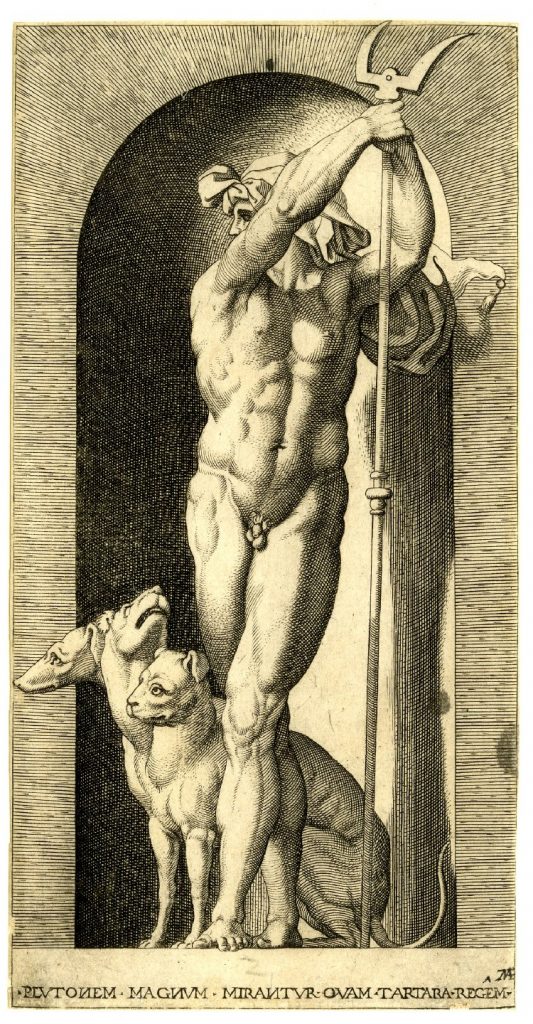More often than not, ancient Greek mythology (religion) served to explain a series of legends. Different from modern religions such as Christianity, Judaism, or Islam, ancient Greek religion was an anthropomorphic polytheism, meaning that ancient Greeks believed in a multitude of individual divine figures that took on human forms and emotions.1 Furthermore, ancient Greek mythology lacked much of the asceticism and mystical enthusiasm that is more commonly seen in modern religions. Most of the highly developed anthropomorphic and comparative rationalism of the ancient Greek religious thought can be accredited to Homer with the aid of his Iliad and Odyssey.2
The people of the ancient Greek civilization were often in a state of weakness under the power of nature; therefore, they relied heavily on the divine individuals of Olympus. Why? They believed that the forces of nature were under the control of their gods. In short, the relationship between humans and divine beings was that of a retribution justice.3 If humans did anything to offend the gods, then those gods would strike back in some sort of fashion to restore justice.4 Therefore, humans were constantly looking to please the gods in fear of their wrath.
Out of the ancient Greek mythology came the god of the dead and the underworld, Hades. Hades had five other siblings: Zeus, Poseidon, Demeter, Hera, and Hestia, and they were all children of Cronus and Rhea.5 After defeating their parents (the Titans), Hades drew lots with Zeus and Poseidon to gain their respective domains. Hades was commonly thought to be a cold god, but he was never considered to be an evil divine figure. Furthermore, it is important to note that his realm, the underworld, should not be associated with the hell of Christianity.6 However, Hades was for the most part feared by all. Another name for the ancient Greek god was Ploutos and later adopted by the Romans as Pluto.7

The god of the underworld was the husband of Persephone (Zeus’s and Demeter’s daughter). Although she was Hades’ wife, she only lived with him during the winter time.8 Persephone was the divine goddess of agriculture and fertility. Therefore, the ancient Greeks accredited the change in nature (winter) to Persephone moving to the underworld. Persephone was unable to stay with Hades at all times due to interference from her mother Demeter. Zeus, however, was okay with the marriage of Hades and Persephone. Therefore, in order to set up the marriage, Zeus had to trick Persephone, so she could be abducted by Hades.9 However, Demeter interfered, and that is why Persephone spends half of the year with Demeter and the other half with Hades.
Furthermore, it is important to note the Greek perspective of the afterlife. Perspectives about the afterlife varied from each other based on their region in Greece as well as their time period in Greek history. The consensus was that the underworld was neither heaven nor hell.10 The sense that exists within Christianity, for example, was not present during the time of the ancient Greeks. Although Tartarus was present as a location within the underworld, the Greeks would not compare it to the equivalent of Christian hell. The way the Greeks saw it, the underworld was a place that everyone ended up after death.11 However, there were a few, including the philosopher Epicurus, that believed that the underworld did not exist at all. He believed that when the body died, the soul died with the body as well.12 A good portion of Greeks refused to believe such a pessimistic perspective of the afterlife. However, even the Greek traditional perspective of the underworld was not as popular despite many Greeks believing in it.
- Funk & Wagnalls New World Encyclopedia, 2016 s.v., “Greek Religion and Mythology.” ↵
- Funk & Wagnalls New World Encyclopedia, 2016 s.v., “Greek Religion and Mythology.” ↵
- Funk & Wagnalls New World Encyclopedia, 2016 s.v., “Greek Religion and Mythology.” ↵
- Funk & Wagnalls New World Encyclopedia, 2016 s.v., “Greek Religion and Mythology.” ↵
- Salem Press Encyclopedia, January, 2015, “Hades (deity),” by Joseph, Michael, DMin. ↵
- Salem Press Encyclopedia, January, 2015, “Hades (deity),” by Joseph, Michael, DMin. ↵
- Salem Press Encyclopedia, January, 2015, “Hades (deity),” by Joseph, Michael, DMin. ↵
- Salem Press Encyclopedia, January, 2015, “Hades (deity),” by Joseph, Michael, DMin. ↵
- Salem Press Encyclopedia, January, 2015, “Hades (deity),” by Joseph, Michael, DMin. ↵
- The Greenhaven Encyclopedia of Ancient Greece, 2007, s.v. “Underworld,” by Robert B. Kebric. ↵
- The Greenhaven Encyclopedia of Ancient Greece, 2007, s.v. “Underworld,” by Robert B. Kebric. ↵
- The Greenhaven Encyclopedia of Ancient Greece, 2007, s.v. “Underworld,” by Robert B. Kebric. ↵



186 comments
Oceane Roux
Thank you for this article! I found the Greek mythology very interesting to learn about, and I really enjoyed learning more about Hades in particular. I always thought that he was the equivalent of Satan in Christianity and it is very surprising to see that Greeks didn’t see him that way even if they were scared of the underworld.
Samman Tyata
I really liked the way how you have outlined the story of Hades and depicting him. It’s awesome that you shaped your article by talking about his family and relationships as well as how he was part of Greek mythology and information about the underworld. Also, the information about the Greek perspective of the afterlife was really interesting. To sum it up, it was a well-managed article.
Jazmin Pizana
Great job on this article! I’ve always enjoyed reading about greek mythology growing up, especially in my freshman year of high school. I’ve always enjoyed stories about the heroes but I found this one very interesting about Hades. I find it interesting how easy it is to mix up the idea of what the underworld actually is. That it’s not Heaven or Hell but just a place where people’s souls go after they cease to exist.
Alejandra Mendez
I have always taken a particular interest in Greek mythology and the many gods and goddesses that are associated with it. This is partially because I was obsessed with the whole Percy Jackson & the Olympians series written by Rick Riordan when they were first published. The Gods and their many stories and powers and what they were gods of fascinated me. I always felt like Hades, however, was the outcast of the 3 super powerful and almighty Gods. Although I must admit I initially associated Hades’ realm with the hell in Christianity, I soon learned otherwise as the article mentions as well.
Mario Sosa
I was always under the assumption that Hades was pure evil and that the underworld was basically hell. It is interesting how the Greeks viewed the underground not as a place of eternal suffering, but instead as a sort of place of purgatory. I have read through this article a few times and now I am curious to learn more about Hades’ relationship with the other gods. Fascinating article, great job!
Blanca Martinez
If asked about Greek Mythology, I’d like to have said that I am an expert, but reading this article made me realize that I am not quite there yet.I had not realized thatthere was many perspectives from said Greeks, from what I had read I always thought that they all thought the same about their views but that’s not the case. Then compared to Christianity and how the underworld is viewed by them is also completely different, I know that but one could maybe think it would be similar with Elysium being Heaven and the Fields of Punishment as Hell. This article was quite opening in various aspects, thank you for taking the time to write aboutthis topic.
Erin Vento
I really love this topic! I appreciated how you gave background of both mythology and of Hades himself. Furthermore, I really liked how you made sure to acknowledge the differences in Greek mythology and Christianity as stand alone religions. Overall I thought this article was very well written and full of meaningful facts on the Hades as a mythological character and as a divine being.
Auroara-Juhl Nikkels
I found this article interesting. I knew most of the information in this article, but that’s because I adore Greek mythology. I also find it interesting how the Greeks viewed the underworld. It wasn’t hell or a punishment. It was a place that everyone went to and faced judgement. The differences in ideologies between the Greek underworld and Christian me curious to know more.
Luke Trevino
I absolutely love Greek mythology. I remember reading about how Hades abducted Zeus’s daughter but i never knew Zeus wanted it to happen. I also did not know she only spent the winter with him in the Underworld. i find it really interesting that a lot of Greeks believed that there was no salvation that you were already deemed to go to the Underworld. Overall very good article!
Alejandro Alcala
Awesome article! It is crazy to see how religions have evolved a little. It’s weird to think that Hades wasn’t an evil god in the Greek world. In shows or movies he is depicted as an evil antagonist, he could be compared to the devil of Catholicism in these depictions. I guess that is just todays adaption of the god.